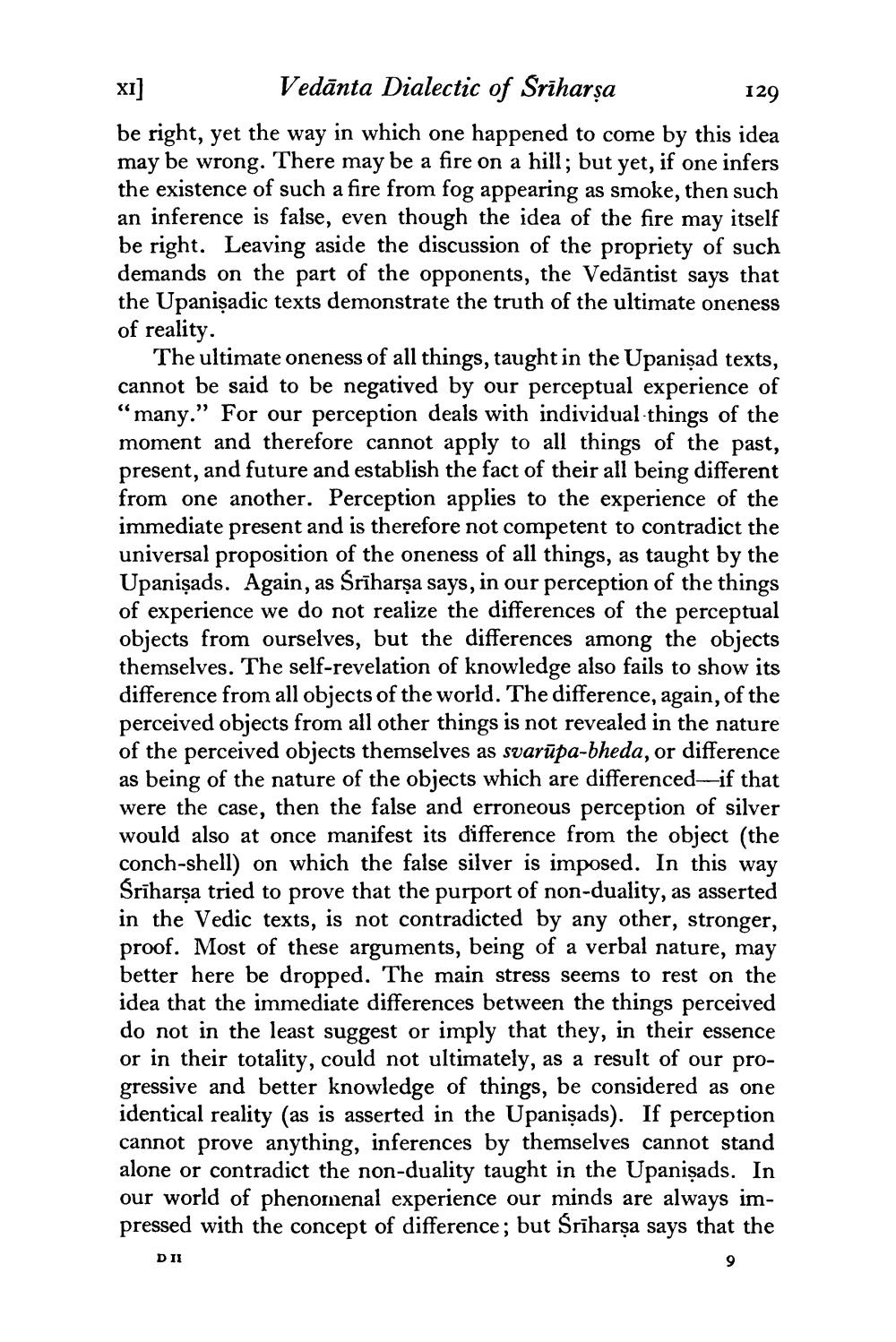________________
Vedānta Dialectic of Sriharşa
129 be right, yet the way in which one happened to come by this idea may be wrong. There may be a fire on a hill; but yet, if one infers the existence of such a fire from fog appearing as smoke, then such an inference is false, even though the idea of the fire may itself be right. Leaving aside the discussion of the propriety of such demands on the part of the opponents, the Vedāntist says that the Upanişadic texts demonstrate the truth of the ultimate oneness of reality.
The ultimate oneness of all things, taught in the Upanișad texts, cannot be said to be negatived by our perceptual experience of “many." For our perception deals with individual things of the moment and therefore cannot apply to all things of the past, present, and future and establish the fact of their all being different from one another. Perception applies to the experience of the immediate present and is therefore not competent to contradict the universal proposition of the oneness of all things, as taught by the Upanişads. Again, as Srīharşa says, in our perception of the things of experience we do not realize the differences of the perceptual objects from ourselves, but the differences among the objects themselves. The self-revelation of knowledge also fails to show its difference from all objects of the world. The difference, again, of the perceived objects from all other things is not revealed in the nature of the perceived objects themselves as svarūpa-bheda, or difference as being of the nature of the objects which are differenced—if that were the case, then the false and erroneous perception of silver would also at once manifest its difference from the object (the conch-shell) on which the false silver is imposed. In this way Śrīharşa tried to prove that the purport of non-duality, as asserted in the Vedic texts, is not contradicted by any other, stronger, proof. Most of these arguments, being of a verbal nature, may better here be dropped. The main stress seems to rest on the idea that the immediate differences between the things perceived do not in the least suggest or imply that they, in their essence or in their totality, could not ultimately, as a result of our progressive and better knowledge of things, be considered as one identical reality (as is asserted in the Upanişads). If perception cannot prove anything, inferences by themselves cannot stand alone or contradict the non-duality taught in the Upanişads. In our world of phenomenal experience our minds are always impressed with the concept of difference; but Śrīharşa says that the
DIE




